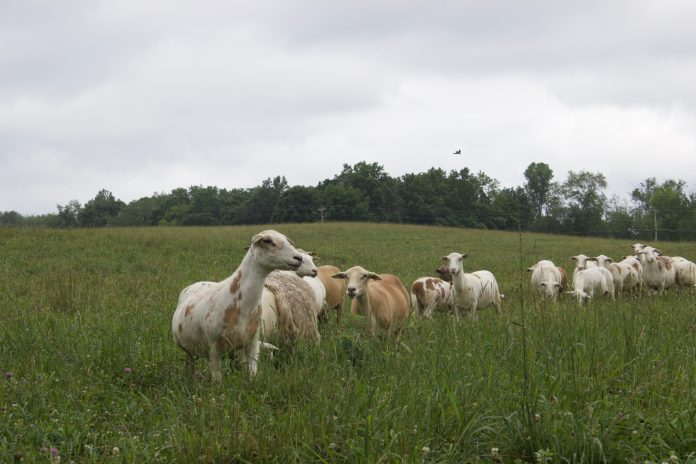“Someone left the gate open!” I yell as I sprint toward the hole in the fence now beckoning to my flock with the promise of greener grass on the other side.
I’m not sure who the guilty party is who caused this calamity. Was it the mowing crew for the utility right-of-way? Maybe some errant hunters who crossed onto our property without our knowledge? Or did I forget to close it the last time I came this way, sure that I would be back before I put the livestock back into this pasture?
The latter may be possible but is unlikely as from an early age, two rules for gates were hammered into my brain. First, when climbing over a gate, always cross on the hinge side to keep from springing the gate and causing it to sag.
The second, and probably most important, is if you open a gate, close it. If everyone had been taught these rules, I would not be standing here out of breath, angry at the perpetrator of this wrongdoing, and trying to figure out how to coax the sheep back onto my property.
Long-term harm
Not every gate that has been left open was done so accidentally. Many times, in the summer months or during the late fall, as the growth of forage starts to slow down, producers will open all their cross-fence gates to give their livestock access to the entire pasture.
While this strategy temporarily provides enough forage for the animals, the long-term impacts could reduce the amount of available forage for years to come.
Allowing free access to all paddocks promotes overgrazing of the most desirable forages leaving the weeds and less palatable forages to take over the pasture. The continued overgrazing of these forages also stunts the future growth of these plants.
One study showed that removing more than 50% of the plant leaf stops most root growth (Crider, 1955). In the fall, forages use the energy from photosynthesis to build up energy reserves in the roots to prepare for winter dormancy and the subsequent green-up in the spring.
The storage capacity of overgrazed forages is significantly depleted causing poor winter survival and spring plant vigor leading to poor performance and reduced yields.
What does this mean for producers? The efficiency of grazing livestock relies on having an adequate amount of biomass to consume per bite taken. The damage from overgrazing in the fall will require more acres to feed your livestock and will impact the rate of gain.
Make every acre count
The cheapest way to feed livestock in our part of the country is through grazing. Why not make every acre count by ensuring that the land grows the most forage possible?
All commodity costs are increasing: fertilizer, feed, labor and fuel. Feeding hay is expensive whether it is made by the producer or bought from others.
Let’s make our livestock work for us and decrease the cost of our inputs by providing an adequate amount of forage during the growing season and extending the grazing season using stockpiled forages.
If you are like me, winter is a great time to start thinking about the upcoming grazing season. While you are fighting the mud to get that hay bale to your livestock, think about that time when you opened those gates to give you just a little more time before you had to get the bale spear out.
Don’t know where to start or want to do more? A few opportunities are coming up that may help. For those in the eastern Ohio area, a Pastures for Profit series is coming up beginning in mid-February in Harrison, Jefferson, and Carroll counties.
Another great group of grazers, the Eastern Ohio Grazing Council holds monthly meetings and pasture walks covering all kinds of grazing topics. As always, ask your local SWCD, NRCS or OSU Extension office for more information on grazing and conservation.













